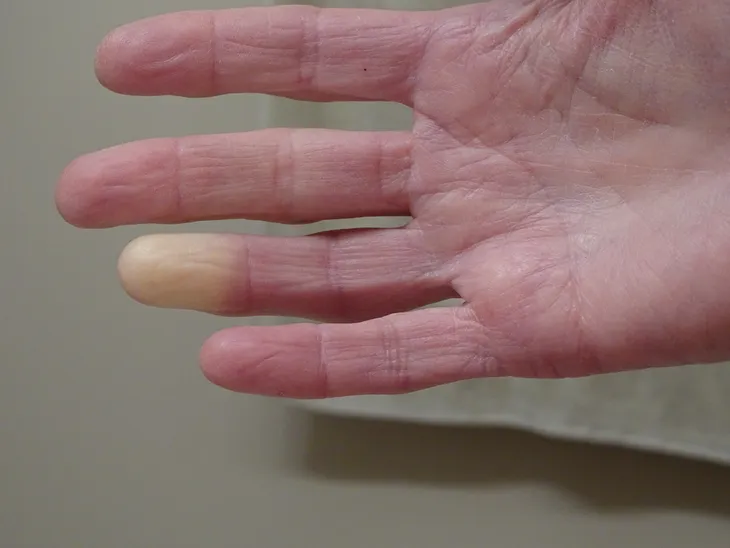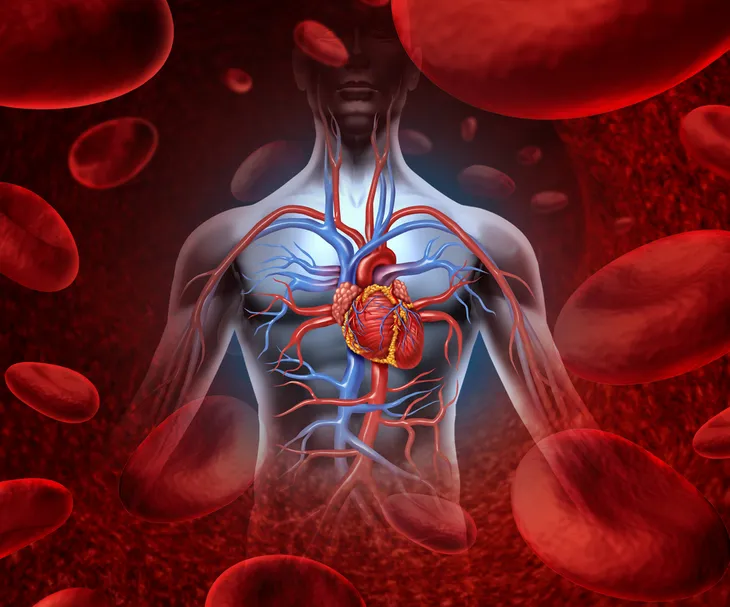Winter is now descending across much of North America, and many people are rediscovering the parts of their body that get coldest fastest on a bitterly chilly day. At the top of that list: hands and fingers, which can become very sensitive if left unprotected and uncovered on a frigid and dark winter morning. Leave this part of your body uncovered by mitts or gloves long enough and it can lead to pain, numbness, and even frostbite.
But that’s fairly normal and, for most people, expected. What’s not normal is feeling a chill in the fingers during the warmer seasons, like spring, summer, and fall. Should you experience this kind of chill, it’s a good idea to talk to your doctor about some of the conditions that may be behind the problem. Let’s take a look at some of those conditions now.
Anemia
While circulatory problems stemming from heart issues can often be responsible for cold fingers, anemia is another potential cause. If you’re not familiar with the condition, anemia emerges when the body fails to produce sufficient red blood cells or when the production of the blood’s hemoglobin is below normal. The result can be insufficient oxygen in the blood, leaving our extremities feeling cold.
Anemia can result from a number of issues, from not getting enough iron to digestive problems, internal bleeding, even heavy menstruation. In addition to the feeling of cold fingers, symptoms include general exhaustion, lightheadedness, difficulty breathing, and mood changes. In many cases, anemia can be treated with a simple iron supplement, though in more serious cases this may require seeing a physician to receive an iron shot.
Raynaud’s Syndrome
Individuals with Raynaud’s Syndrome often feel as though their fingers are bitterly cold. The problem is tied to the restricting of the fingers’ blood vessels, causing them to become highly sensitive to temperature. Often, people with this condition experience a chill and general numbness in other extremities, from their toes to ears and nose.
If you think you may have Raynaud’s Syndrome, there are a few signs to look out for. The next time your fingers feel chilled, watch their color: people with the condition will see their fingers go from a normal color to white, then even blue, as a result of the lack of blood flow to the region. Once the episode passes, the fingers should slowly return to their natural color.
Lupus
If you’re finding your fingers feel chilled on even mild or warm days, there’s a chance the problem is related to the development of lupus, a somewhat mysterious ailment that can result in a person’s immune system attacking its own tissue.
This may not directly result in the feelings feeling chilled or numb, but lupus can contribute to the development of Raynaud’s Syndrome, which does have that effect on the hands and fingers. It’s not yet known why lupus — or other autoimmune diseases like scleroderma or rheumatoid arthritis — are so connected to the onset of Raynaud’s Syndrome, but the link is well known in the medical community. In any case, treating lupus and ailments like it can have a significant effect on the symptoms associated with Raynaud’s Syndrome.
Circulatory Issues
It’s pretty simple: if blood flow is limited to any part of your body, and particularly the extremities like your toes and fingers, you will likely feel like those body parts are cold. Blood flow brings warmth, so if you feel cold a lot, it’s a strong indication that there’s a problem with the circulatory system, including the veins, arteries, or the heart itself.
These problems can often be tied to the onset of heart disease, which is most prevalent in men over age 50 but can affect women and people younger than 50. Such heart problems can be related to lifestyle choices, such as overconsumption of high-cholesterol foods, not getting enough exercise, smoking, and drinking alcohol to excess. The very elderly may feel cold regardless of their life decisions, however.
Smoking Cigarettes
There are many, many reasons to stop smoking and avoid smoking cigarettes altogether. One of the relatively minor reasons is the feeling of cold fingers, which can emerge when the nicotine found inside cigarettes causes the blood vessels in the hands to constrict and limit blood flow to this part of the body. Smoking can also result in plaque building up in the arteries, making their job of sending blood throughout the body much more difficult than it needs to be.
Quitting smoking isn’t easy, but the emergence of chilled hands and fingers should be seen as an early sign that it’s time to give up the cigarettes. Your doctor can put you on a program that can make giving up this habit easier.
Vitamin B12 Deficiency
Fail to get enough vitamin B12 in your diet and you could soon find your fingers feeling more frigid than usual. Why? Because insufficient vitamin B12 intake can result in a decline in red blood cell production.
If you’re a vegan, there’s a good chance you’ll face this problem because you may not be eating foods — like meat, eggs, milk, and cheese — that contain ample amounts of vitamin B12. You can help solve this problem by taking a multivitamin or vitamin B12 supplement. A vitamin B12 deficiency can also emerge in older adults whose bodies may not be absorbing nutrients in the same way they did earlier in life.
Medications
If you’re taking a medication for just about any health issue, there’s a chance it could be causing your fingers to feel cold even when it’s relatively warm out. That’s because a wide range of medications can have the side effect of causing the blood vessels to constrict, thereby limiting blood flow to some parts of the body, like the extremities.
So, what kinds of medication can result in cold fingers? If you’re taking a beta-blocker for blood pressure issues, you may find your fingers feeling chilled. The same can be said for drugs designed to treat cancer, migraine headaches, even allergies affecting the sinuses. If the chilled fingers feeling gets to be enough of a distraction for you, talk to your doctor about the possibility of switching to a new medication.
Hypothyroidism
If your fingers feel cold on a warm day, it’s possible the issue is connected to the activity of your thyroid gland and not the temperature (or even the performance of your circulatory system). That’s because the thyroid gland, which is located in the throat, plays a central role in helping regulate the temperature of our bodies. In essence, the thyroid is our personal thermostat.
If your thyroid is acting in ways it shouldn’t, there’s a good chance your fingers won’t be the only body parts affected. Thyroid problems can also result in feelings of fatigue, constipation, weight fluctuation (rapid loss or gains), and a general feeling of not being warm enough. These issues are most prevalent in women, particularly those over age 50.











